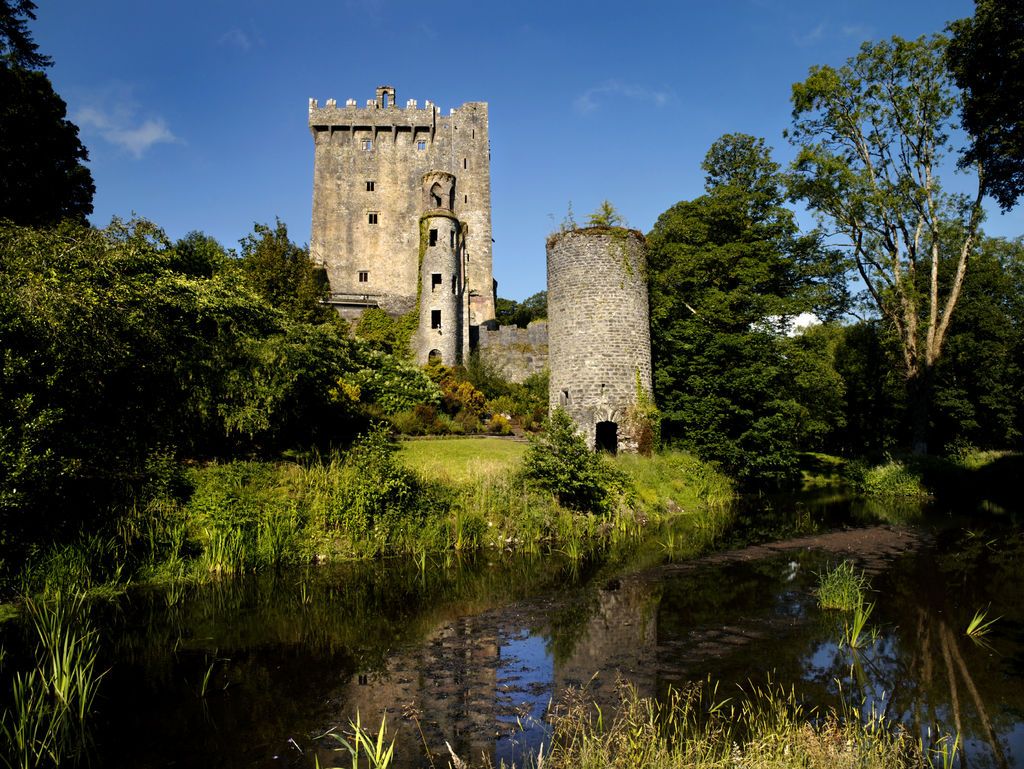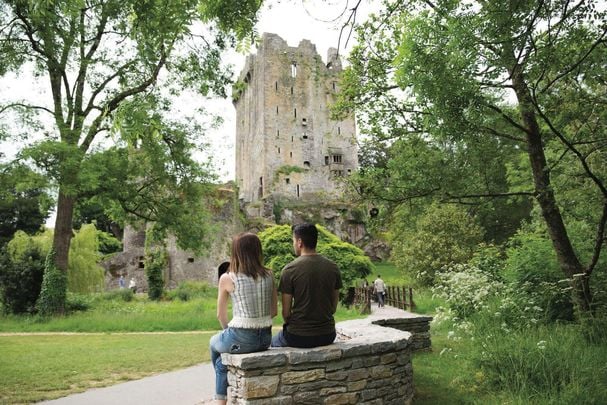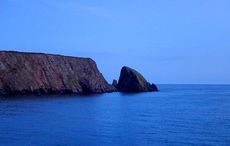Most people go to Blarney Castle to kiss the infamous, gab-gifting stone, but visitors should also proceed (with caution!) to the castle's fascinating Poison Gardens.
While the most famous attraction on the grounds of Blarney Castle in County Cork might be the famous stone tourists literally bend over backward to bestow a kiss upon, a visit to this medieval stronghold would not be complete without a stroll around the castle's gardens.

Blarney Castle. Photo: Chris Hill
There you will find 60 acres of parkland and lush gardens, including a fern garden and ice house, arboretums and a pinetum with rare species of trees, a herbaceous border of colorful perennials, the Seven Sisters garden inspired by a legend about the King of Munster, and one particularly curious corner - the Poison Garden.
Blarney Castle's Poison Gardens are located behind the castle battlements. Though at a glance they may seem like any other botanical garden, warning signs with skull and crossbones and cages carefully constructed to contain the deadliest of the plants reveal this is no ordinary garden.
"Do not touch, smell, or eat any plant!" visitors are warned, with a note that children must be accompanied at all times. The warnings are there for good reason: among the plants and herbs are deadly specimens such as Wolfsbane, Mandrake, Hellebore, Hemlock, Nightshade, and Ricinus communis, which produces castor oil and the lethal poison ricin. Placards and signposts share the plants' fascinating histories, properties poisonous and medicinal, and lore.
Plants of the illicit variety such as opium poppy and cannabis also grow in the garden. Memorably, back in 2010, Gardaí (Irish police) ordered the horticulture team at Blarney Castle to dig up the garden's Cannabis Sativa and Papaver Somniferum and deliver them to the local police station.
Despite the horticulturists making their intentions to grow the plants known to local law enforcement, they had not yet fully secured the proper licensure.
In 2019, Blarney Castle announced that they are planning an exciting addition to the Poison Gardens, a new section called the Carnivorous Corridor, which will feature an exotic collection of carnivorous plants.
The Poison Gardens are a must-see for any visitor to Blarney Castle. The gardens and arboretums are open year-round and access is included with castle admission.




Comments